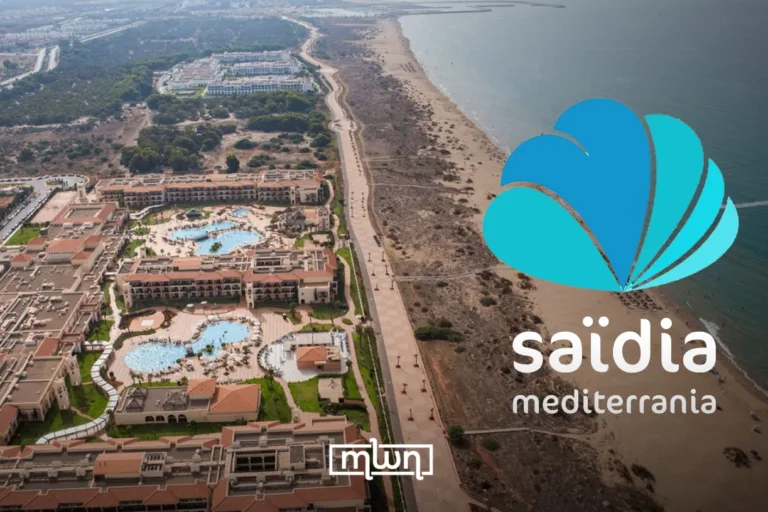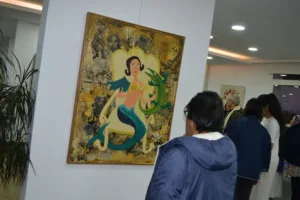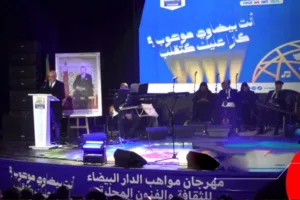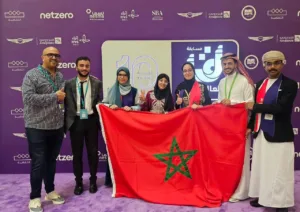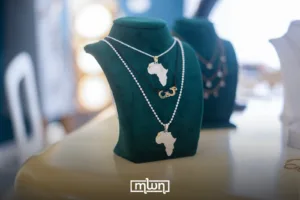Morocco is facing a cultural crossroads after a kissing scene filmed in Tangier triggered outrage and official complaints.
Fez – A kiss on screen has triggered a storm off-screen. In late June, a video showing two foreign actors kissing in Tangier’s symbolic Place du Grand 9 Avril, in front of the Moroccan flag, ignited a wave of public outrage, formal complaints, and a heated national debate.
For some, it’s a matter of artistic expression. For others, it’s a blatant disregard for Moroccan values.
At the center of the controversy is a scene filmed for a foreign movie, reportedly featuring a prolonged kiss shot multiple times in a highly frequented public space, with minimal visible crew presence.
The footage spread rapidly across Moroccan social media, polarizing public opinion and raising difficult questions about cultural respect, artistic liberty, and the invisible lines that foreign productions are expected to observe when filming in a Muslim country.
Let’s not forget: Morocco is a Muslim-majority nation, where public displays of affection are not just frowned upon, they’re often considered violations of religious, cultural, and legal norms.
While the law may not explicitly criminalize every form of PDA, local tradition holds a powerful influence over what is deemed acceptable in public spaces.
In a society where modesty is tied closely to both identity and public behavior, a kissing scene in front of a national symbol is bound to provoke more than a shrug.
In response to the video, the Center for the Protection of Social Rights and Development Strategies filed an official complaint to the Public Prosecutor in Rabat, calling the scene an “affront to public decency.”
The organization argues that the kiss, staged openly in such a meaningful location, constitutes a moral transgression and possibly a breach of Moroccan law.
The complaint further criticizes the Moroccan Cinematographic Center (CCM) for approving a script that allegedly includes unethical content, and also holds the production company, actors, film crew, and the municipality of Tangier accountable for negligence and lack of oversight.
What’s especially striking about this incident is not just the kiss, but the clash of two mentalities it reveals among Moroccans themselves.
On one hand, some argue that foreign films follow global cinematic norms and should be granted artistic freedom. These voices maintain that intimacy is a normal part of storytelling and that Morocco, as a global filming destination, should not impose overly rigid constraints on content. “It’s just a movie,” some say. “No one was hurt.”
On the other hand, critics say that filming such a scene in public, and particularly in front of national symbols, is insensitive at best and provocative at worst. “You’re in Morocco. Respect the culture,” they argue.
The sentiment isn’t necessarily anti-art. Rather, it’s a call for basic cultural sensitivity when operating in a society with different social and religious expectations.
Foreign productions, they argue, shouldn’t apply their rules wholesale when they’re hosted in countries with their own codes of conduct.
The debate touches a raw nerve in Morocco’s ongoing negotiation between tradition and globalization. The country has long been a magnet for international productions, known for its cinematic landscapes and cooperative film industry. But as this case demonstrates, that openness comes with boundaries.
There’s also a broader issue at play: who gets to define cultural respect? Should the presence of a film permit automatically validate the content? Is it enough to say “this is art” in a country where modesty in public spaces is taken seriously?
Or should art be allowed to push social boundaries, even if that boundary happens to be a kiss on the steps of a public square?
There are no easy answers. But what’s clear is that the divide runs deep. One group sees this incident as harmless and overblown. The other sees it as symptomatic of a larger trend of cultural disregard, an erosion of national values under the guise of creative license.
In the end, this isn’t just about a kiss. It’s about the kind of Morocco we want to be: welcoming and modern, yes, but also rooted in traditions that still matter to many.
The real challenge lies in striking that delicate balance, without silencing creativity or erasing cultural dignity.
Read also: Rihanna, A$AP Rocky Expecting Third Child and Hint at Gender, Name




